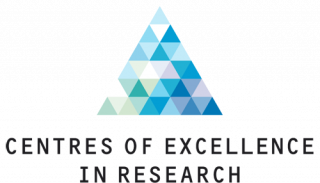The Research Council of Finland project A Dim Light of Dawn: Finnish Post-Cold War Experiences between East and West, 1989–1995 and the Academy of Finland Centre of Excellence in the History of Experiences (HEX) is organizing a one-day workshop on the post-Cold War history of experiences in the Baltic Sea region at Tampere University in November 2023.
The turn of the 1990s marked a period of political, social, and economic turmoil in the Baltic Sea Region. The collapse of the Soviet Union and the fall of the Berlin Wall created a unique interregnum, characterized by uncertainty, ambiguity, excitement and potentiality. In spite of economic and social difficulties, the immediate post-Cold War years seemed to offer an unexpected window of opportunities. This period of liminality was a time of profound change, where individuals and communities were navigating new political realities, shifting cultural identities, and redefining their place in the world. Today’s geopolitical challenges and repositioning in the Baltic Sea region caused by the Russia’s war against Ukraine places a renewed interest in the history of the immediate post-Cold War period.
The early 1990s were characterized by grassroots transnationalism. Grassroots movements gained prominence during this period, as individuals and NGOs forged new connections across borders. These movements played a crucial role in advocating for political change, and contributing to the reconfiguration of the Baltic Sea region’s social and cultural landscapes.
Concurrently, the rise of (neo)patriotism influenced the shaping of collective memories and the reinterpretation of historical narratives in the region. The intertwining of grassroots activism, (neo)patriotism and European integration also influenced the discussion surrounding national identities and historical memory, shaping the narratives of the transformative period.
This workshop seeks to explore the histories of liminal experiences of individuals and communities in the Baltic Sea region (Nordic countries, Baltic countries, Poland, Germany, Russia) during this transformative period. The history of experiences examines the socially and culturally constructed character of individual, collective and communicated encounters, perceptions, and interpretations, providing insights into the lived realities of diverse groups and their impact on society.
- Experiences of shifting identities
- Experiences of grassroots movements and civil society initiatives
- Experiences in changing economic circumstances
- EU referendum debates in the Nordic countries
- Memory politics and history culture during the transformative period
- The history of emotions in the face of political and social transformations
- Experience of environmental change and its impact on individuals and communities
- (Neo)patriotic experiences and movements around the Baltic Sea region
- Experiences of transnational connections, cooperation and networks
- Minority experiences in the changing environment
The language of the workshop is English. The workshop is organized as part of the Research Council of Finland research project A Dim Light of Dawn: Finnish Post-Cold War Experiences Between East and West, 1989–1995 at the Academy of Finland Centre of Excellence in the History of Experiences (HEX).
Programme
9.30–9.45 Welcome and introduction
Tuomas Tepora (Univ. Tampere)
9.45–10.30 Baltic intergroup of the European Parliament, 1988–1991
Pauli Heikkilä (Univ. Tartu)
10.30–11.15 Lived experiences, emotional politics, and fears of loss in Finnish parliamentary debates about EU membership
Kati Katajisto & Matti La Mela (Univ. Helsinki & Univ. Uppsala)
11.15–12.00 Åland, Norden and Europe: Conceptual ambiguities after the Cold War
Hasan Akintug (Univ. Helsinki)
Lunch 12–13
13.15–14.00 Building lesbian lives at the end of Cold War: Oral history reflections on an Estonian-Finnish women’s network
Rebeka Põldsam & Riikka Taavetti (Univ. Tartu & Univ. Turku)
14.00–14.45 Politics in the rear mirror, efficiency in the future: Football club fusions and Finland in the 1990s
Sami Koskelainen (Univ. Helsinki)
Coffee
15.00–15.45 Economic adversity and national identity: Finland in the early 1990s
Ville Yliaska (Univ. Lapland)
15.45–16.30 Heritagization of “tense times”: Notes on the commemoration of Polish and Finnish experience of the 1990s
Magdalena Rek-Woźniak (Univ. Łódź & Univ. Helsinki)
16.30–17.15 Search for soldiers´ bodies, reburials, and commemoration: “Dead body politics” in Finland in the early 1990s
Aapo Roselius (Univ. Tampere)
17.15–17.45 Final discussion

